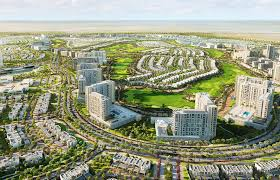Now Reading: UAE Real Estate: 7 Cities Supporting Tax-Conscious Buyer Decisions in 2025
-
01
UAE Real Estate: 7 Cities Supporting Tax-Conscious Buyer Decisions in 2025
UAE Real Estate: 7 Cities Supporting Tax-Conscious Buyer Decisions in 2025

Table of Contents
The United Arab Emirates (UAE) has long been a magnet for real estate investors, thanks to its tax-friendly environment and booming property market. In 2025, the UAE continues to attract tax-conscious buyers with its absence of annual property taxes, no capital gains tax, and minimal transactional fees. This makes it one of the most appealing destinations for property investment globally.
Whether you’re a first-time buyer, a seasoned investor, or an expat seeking long-term residency, the UAE’s real estate market offers diverse opportunities across its seven emirates. This article explores the top cities in the UAE for tax-conscious buyers in 2025, highlighting their unique advantages, investment potential, and tax benefits.
Why the UAE Is a Tax Haven for Real Estate Investors
The UAE’s real estate market stands out due to its investor-friendly tax structure. Unlike many countries, the UAE imposes no annual property taxes or capital gains tax, meaning investors keep more of their rental income and profits from property sales. The main costs include a property transfer fee (typically 4%, often split between buyer and seller) and a 5% Value Added Tax (VAT) on commercial properties, with residential properties often zero-rated or exempt.
These low costs, combined with high rental yields and residency visa incentives, make the UAE a prime choice for tax-conscious buyers. According to the Dubai Economic Report, the real estate sector contributes 5-7% to Dubai’s GDP, with 2025 expected to see continued growth driven by foreign investment and infrastructure development.
Each of the UAE’s seven emirates—Dubai, Abu Dhabi, Sharjah, Ajman, Ras Al Khaimah, Fujairah, and Umm Al Quwain—offers unique opportunities for buyers looking to maximize returns while minimizing tax burdens. Below, we dive into why these cities are ideal for tax-conscious investors in 2025.
1. Dubai: The Global Real Estate Powerhouse
Dubai remains the epicenter of the UAE’s property market, known for its luxury developments, high rental yields, and tax advantages. In Q1 2025, Dubai recorded AED 193 billion in property transactions across 58,039 deals, reflecting strong investor confidence. Neighborhoods like Business Bay, Downtown Dubai, and Jumeirah Village Circle (JVC) offer rental yields of 6-8%, among the highest globally.
For tax-conscious buyers, Dubai’s lack of annual property taxes and capital gains tax is a major draw. The only significant cost is the 4% transfer fee, typically split between buyer and seller. Residential properties are often VAT-exempt or zero-rated, especially for first-time sales within three years of completion. Investors can also benefit from the Golden Visa program, where purchasing property worth AED 2 million or more grants a 10-year residency visa. Popular areas like JVC and Dubai Marina attract buyers seeking affordable apartments, while luxury buyers target Palm Jumeirah and Emirates Hills for high-end villas.
2. Abu Dhabi: The Capital’s Steady Growth
Abu Dhabi, the UAE’s capital, offers a stable and growing real estate market. In Q1 2025, the emirate recorded AED 25.3 billion in transactions, a 34.5% increase from the previous year. Areas like Al Raha Beach, Saadiyat Island, and Yas Island are popular for their mix of luxury and mid-market properties. The absence of annual property taxes and capital gains tax mirrors Dubai’s appeal, with transfer fees at 2-4% depending on the transaction.
Abu Dhabi’s market is driven by government initiatives and infrastructure projects, such as the expansion of cultural hubs like Saadiyat Island. Expatriates can own properties in designated areas, and the Golden Visa program applies here too, making it attractive for long-term investors. Residential rental income for expatriates is subject to a 3% municipal tax, but this is minimal compared to global standards.
3. Sharjah: Affordable and Emerging
Sharjah is gaining traction as an affordable alternative to Dubai and Abu Dhabi. The Aljada development, a smart city project by Arada, is a hotspot for 2025, offering low-cost properties with high rental yields. Sharjah’s transfer fees are typically 2%, lower than Dubai’s, and there are no annual property taxes or capital gains tax. A 2% municipal tax applies to rental income for expatriates, making it one of the lowest in the UAE.
Sharjah’s proximity to Dubai, combined with its growing infrastructure, appeals to budget-conscious buyers and families. The emirate’s focus on cultural and educational developments also makes it a stable choice for long-term investment.
4. Ajman: Budget-Friendly Investment Hub
Ajman is one of the UAE’s most affordable emirates, ideal for first-time buyers and investors seeking high returns on a smaller budget. Property prices here are significantly lower than in Dubai, yet rental yields remain competitive at 6-7%. Like other emirates, Ajman has no annual property taxes or capital gains tax, with transfer fees around 2-4%. Its proximity to Dubai and ongoing infrastructure improvements, such as new residential communities, make it a promising market for 2025.
5. Ras Al Khaimah: The Rising Star
Ras Al Khaimah is emerging as a lifestyle destination, particularly for waterfront and resort-style properties. Developments like Mira Coral Bay, a multi-branded waterfront community, are drawing investors seeking both luxury and affordability. The emirate’s transfer fees are similar to other emirates at 2-4%, with no annual property taxes or capital gains tax. Ras Al Khaimah’s growing tourism sector and infrastructure projects, like the Wynn Resort, boost its appeal for investors targeting rental income from vacation homes.
6. Fujairah: Niche and Serene
Fujairah offers a quieter, nature-focused real estate market, appealing to buyers seeking coastal properties or vacation homes. While smaller than Dubai or Abu Dhabi, Fujairah’s market benefits from the same tax advantages: no annual property taxes, no capital gains tax, and low transfer fees (2-4%). Its growing popularity as a tourist destination supports rental income potential, particularly for short-term vacation rentals.
7. Umm Al Quwain: The Hidden Gem
Umm Al Quwain is the UAE’s least developed emirate, but its low property prices and tax benefits make it a niche option for savvy investors. With no annual property taxes, no capital gains tax, and transfer fees of 2-4%, it mirrors the UAE’s investor-friendly structure. Emerging developments and its proximity to Dubai make it a long-term bet for tax-conscious buyers looking for untapped potential.
Key Tax Considerations for 2025
For tax-conscious buyers, understanding the UAE’s tax landscape is crucial. Here are the main points to keep in mind:
- Property Transfer Fees: Typically 2-4% of the property value, often split between buyer and seller. Dubai charges 4%, while Sharjah and others may charge less.
- VAT: Residential properties are zero-rated for the first sale within three years or exempt thereafter, while commercial properties incur a 5% VAT.
- No Annual Property Tax or Capital Gains Tax: This allows investors to retain more rental income and sale profits.
- Municipal Taxes: Expatriates pay a 2-5% rental tax depending on the emirate, but this is minimal compared to global standards.
- Corporate Tax: Introduced in 2023, a 9% corporate tax applies to businesses with income over AED 1 million, but individual real estate investment income is generally exempt unless tied to licensed commercial activities.
For U.S. citizens, rental income and capital gains from UAE properties must be reported to the IRS, but deductions and the Primary Residence Exemption can reduce tax liability. Consulting a tax professional is recommended.
Why 2025 Is the Year to Invest
The UAE’s real estate market in 2025 is thriving, driven by economic diversification, infrastructure growth, and investor-friendly policies. The Golden Visa program, high rental yields (6-8% in prime areas), and minimal tax burdens make it a haven for tax-conscious buyers. Dubai leads with its global appeal, while Abu Dhabi, Sharjah, Ajman, Ras Al Khaimah, Fujairah, and Umm Al Quwain offer diverse options for every budget and goal.
Whether you’re eyeing luxury villas in Dubai, affordable apartments in Ajman, or waterfront properties in Ras Al Khaimah, the UAE’s tax advantages and market growth make it an ideal destination. UAE cities
read more: Fujairah Property: 6 Coastal Developments Offering Tax-Free Investment Options in 2025






















